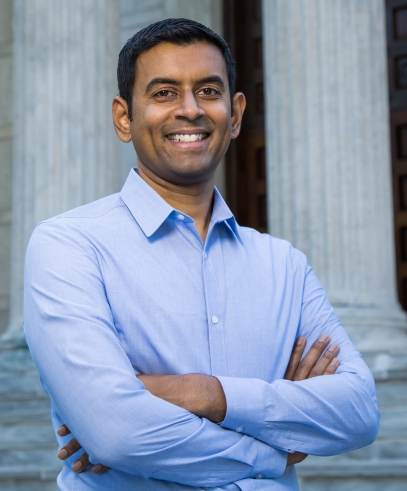Privacy Law Scholars Conference
June 10, 2009 at 8:16 pm 8 comments
I had a great time at the Privacy Law Scholars Conference in Berkeley last week, perhaps more so than at any CS conference I’ve attended. A major reason was that there were — get this — no talks. Well, just one keynote speech. The format centered around 75 minutes-long discussion sessions (which seem to be called workshops), with 5 parallel tracks; in each session, you pick which track you want to attend. You are supposed to have read the paper beforehand, and usually everyone in the room has something to say and gets a chance to do so.
This seems way more sensible to me than the format of CS conferences, where there is only one track. I can’t imagine that anyone would genuinely want to attend all the talks. Ideally, for any given talk, half the people should skip it and spend their time networking instead, but in my experience this never happens. Worse, the talks are only 20-30 minutes long; while this is enough time to motiviate the paper and inspire the listeners to go read it afterward, it is never enough to explain the whole paper. Sometimes speakers don’t get this concept, and the results are not pretty.
Anyways, I was surprised by the ease with which I could read law papers and participate in the discussions, even if my understanding was (obviously) not nearly as deep as that of a law scholar. This is something to ponder — while legalese is dense and frequently obfuscated, law papers are a breeze to read, at least based on my small sample size.
There is one paper, by Paul Ohm, that I particularly enjoyed: it is about re-examining privacy laws and regulatory strategies in the light of re-identification techniques. This generated a lot of interest at the conference, and I found the discussion fascinating. A major reason I started 33bits was to to be able to play a part in informing these developments; it seems that this blog has indeed helped, which is highly gratifying. I learnt a lot about privacy and anonymity in general, and I look forward to writing more about it in future posts, to the extent that I can do so without talking about specific workshop discussions, which are confidential.
Entry filed under: Uncategorized. Tags: conference, law, privacy.
8 Comments Add your own
Leave a reply to web design in miami Cancel reply
Trackback this post | Subscribe to the comments via RSS Feed

1. Pozycjonowanie Poznan | June 15, 2009 at 10:52 am
Pozycjonowanie Poznan | June 15, 2009 at 10:52 am
Well this sounds interesting but aren’t speaches the whole point of conferences? I mean otherwise you might as well be discussing this stuff online.
2. Arvind | June 15, 2009 at 10:55 pm
Arvind | June 15, 2009 at 10:55 pm
On the contrary, talks can be easily broadcast over the web with only a minimal loss of information and context. In fact, it is one of my pet peeves that most CS conferences don’t yet broadcast their talks.
The real purpose of conferences is networking, a fact that gets drilled into every newbie researcher by their mentor/advisor. As I discovered at this conference, there can be an important secondary purpose: roundtable discussions about papers. I have never seen this done effectively before.
Anyway, let me reiterate that talks are absolutely not the point of conferences. Also, research never gets done in online group discussions; the mental bandwidth is just too low.
3. web design in miami | June 23, 2009 at 12:46 pm
web design in miami | June 23, 2009 at 12:46 pm
Talks get boring fast, especially if whoever is talking is not very charismatic …
I really like this way of organizing things, keeps the people focused on what they want to learn, keeps them interested in the topic. And as a result, they learn more.
4. Tipsy | June 26, 2009 at 11:40 am
Tipsy | June 26, 2009 at 11:40 am
It’s funny, you’d think that these days everything would be orginised online yet there’s still hundreds of “real-life” conferences people attend.
5. Arvind | June 26, 2009 at 4:07 pm
Arvind | June 26, 2009 at 4:07 pm
Tipsy: I’m not sure why you would expect that. Conferences are an incredibly efficient way to meet a ton of new people and exchange new ideas in a short period of time; online interactions don’t even come close to achieving that kind of “bandwidth.” (See also my comment above.)
If you’re trying to flesh out a vague, half-formed research idea with another person, we simply don’t have the technology to do it without face-to-face interaction. Even webcams are not enough.
6. wyposazenie hoteli | July 24, 2009 at 11:32 am
wyposazenie hoteli | July 24, 2009 at 11:32 am
Nice to tknow such conferences are around. Maybe it is nothing huge, but good occasion to meet interesgint people or gain useful information.
7. Suresh | September 9, 2009 at 8:16 am
Suresh | September 9, 2009 at 8:16 am
Don’t know which CS conferences you attend :). almost every conference I attend has multiple sessions, and these are usually clustered by topic, to give an approximation of tracks.
8. Conferences: The Good, the Bad and the Ugly aspects « 33 Bits of Entropy | June 17, 2010 at 7:24 am
[…] has parallel sessions. I had a great experience with that format at the Privacy Law Scholars Conference, but this time I’m not so sure — I’m regularly finding conflicts among the […]